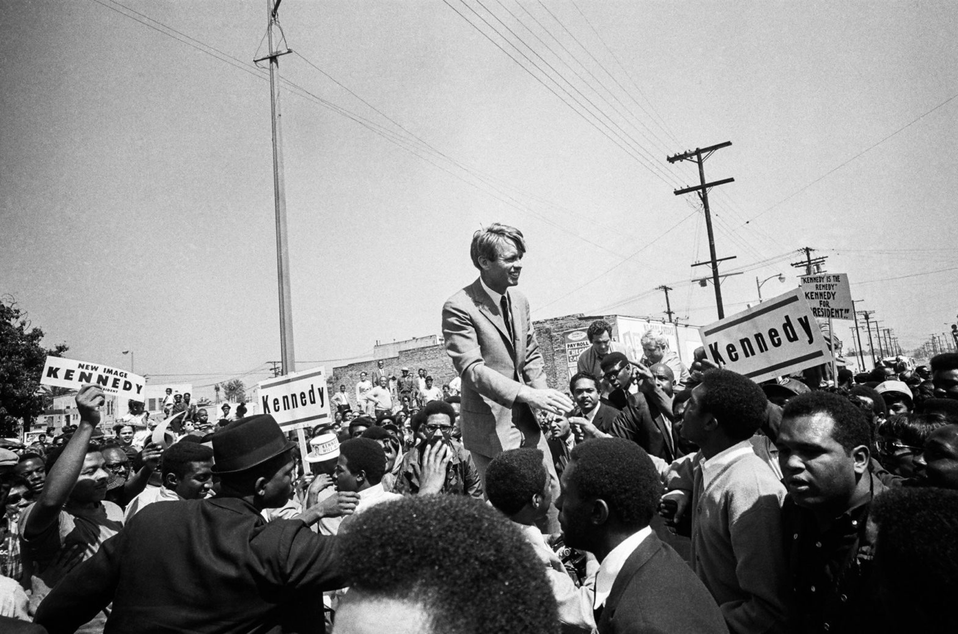You are a better public speaker right now than the late Robert F. Kennedy was when he ran for the US Senate.
Of course, I don’t know this for a fact, But there’s a pretty good chance it’s true, for RFK appeared lost in front of microphones and audiences during his first campaign. Yet by the time of his tragic passing four years later, Americans were hanging on his every word.
What changed? Practice helped a bit. But it was getting in touch with himself and finding his true purpose that made all the difference.
When he launched that first campaign in 1964, Kennedy was already a highly accomplished 37-year-old. But he’d never before needed to earn the affinity of the public — voters.
Kennedy’s announcement and his early appearances were awkward and uninspired. PBS’s David Gruber described it this way in his American Experience documentary:
“Bobby was at war with himself; his need to emulate his brother battling with his desire to find his own voice.”
Kennedy also did not have JFK’s natural talent for communicating in front of a live audience. Few of us do.
But then something happened. Something that hit at the heart of the man. And it was a game-changer.
In February of 1968, Bobby traveled to eastern Kentucky to tour some of the most impoverished counties in the country. He and his aides traveled 300 miles in Appalachia, visiting schoolhouses and holding public hearings.
Kennedy had taken up the mantle of poverty several months earlier, but he’d never seen physical desperation like this. One out of five people in the region were underweight — and about 50% had intestinal parasites.
William Greider was a reporter at the time for the Louisville-Courier Journal. He was skeptical at first about the political visit. But once Greider saw Bobby’s sensitivity as he quietly visited schoolchildren, going desk to desk, he could tell it was real — and that the Senator had tapped into something very powerful. Years later, Greider would recall:
“Bobby Kennedy acted in the spirit of the moment. I can still picture him talking to street crowds in Chicago and New York, spinning it out with full feeling, emotion and thought. That was his brilliance. He was not a bleeding heart until that season. It was in that moment that he captured the spirit of the liberal discontent. Not just in eastern Kentucky, but everywhere.”
Civil rights hero John R. Lewis had known Kennedy for years at that point. Lewis later described how a different leader was emerging right in front of his eyes:
“He had the capacity to open himself up. We saw him grow. We saw him change.”
After his Kentucky visits, Kennedy would officially stand up to denounce the war in Vietnam, pointing to the death and suffering of so many Vietnamese.
He joined the striking grape workers in California and give impassioned speeches about their rights as laborers. As human beings.
Grubin described the new Bobby Kennedy:
“He had fully awakened from his dark night of mourning. The moral impulse to fight evil and do good that had always been a part of him, was taking a new direction.”
In the weeks leading up to his assassination in June of 1968, Bobby was connecting with audiences in a way he never had before.
During his final days, Kennedy was campaigning in Los Angeles on his way to winning the California primary. By now, crowds were mobbing his convertible and reaching out to grab him as if he were the Beatles.
Kennedy told his staff to drive through the riot-ravaged Watts community. He said to an aide, “I want you to see what I see.” The aide saw poverty and desolation but also witnessed the way African-Americans were now viscerally drawn to Kennedy, and his message about doing more for those who have less. Voters could see and feel who was.
To be sure, using the legendary history of Robert F. Kennedy is a dramatic example of how one can become a better public speaker.
But even when you strip back all of the fanfare and life circumstances of RFK’s journey, at the core of it all is a simple principle: Connect with your own passion, so that your audience will connect with you.
Being polished is great. Being articulate is an asset. Knowing your subject matter is critical. But if your audience cannot feel your purpose and passion, the performance suffers. And then the power of your message gets diluted.
The more they receive of you, the more they’ll want of you. In the best way possible.


